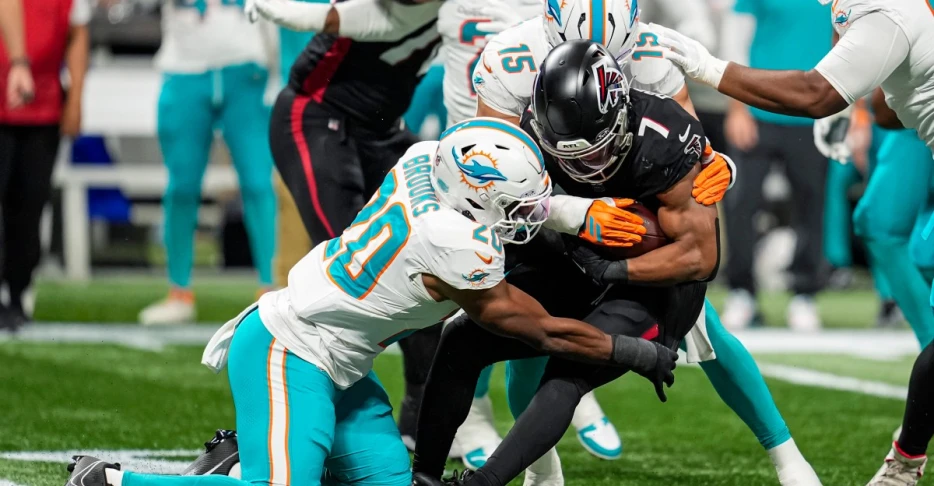
 The Falcoholic
The Falcoholic
The Atlanta Falcons‘ current struggles stem from a lack of offensive identity, as seen in their Week 8 loss to the Miami Dolphins. The team’s lack of physicality is dooming any chance this offense has of digging itself out of its current predicament.
For the second week in a row, Falcons head coach Raheem Morris used the name of the city as a verb to stand in for being physical when he said the Dolphins “out-Atlanta-ed” the team, just as he had the previous week against the San Francisco 49ers.
The Falcons owe some of their lack of physicality against the 49ers to making minimal attempts to establish the run early on. That was not the case against Miami, where they tried to run the ball but were stymied by a surprisingly stout Dolphins run defense. The Dolphins, of course, were not surprised by the Falcons’ strategy to re-establish a physical identity, which led to accusations of predictability from offensive coordinator Zac Robinson.
However, an opponent expecting a team to run the ball doesn’t guarantee they can stop it. The Detroit Lions are a great example of a team well known for their run-first, physical offensive identity that still achieves success every week.
Yet, a reason the Lions can find success despite not catching opponents off guard is that, in addition to their run game, they have an effective counter via play-action passing. Teams can sell out against the run, but doing so makes them more vulnerable against the pass, as the Lions have the highest expected points added (EPA) per pass on play action, according to Next Gen Stats.
Meanwhile, the Falcons rank dead last in EPA added on play-action passes. However, the team did achieve some success against the Dolphins on their lone play-action pass of the game. That came on a 24-yard strike from Kirk Cousins to Kyle Pitts that helped set up the team’s first score against Miami. However, the Falcons did not call another play-action pass the rest of the game.
A hefty dose of runs and play-action passes made for a viable strategy against the Dolphins. Entering the week, the Dolphins’ defense ranked 30th in EPA allowed per rush and 27th in EPA allowed per play-action pass. Yet despite a highly favorable matchup, the Falcons failed to take advantage. In the case of the run, it was due to poor blocking up front; in terms of play-action, it was simply from a lack of effort.
If the Falcons are going to turn their season around, they must be more capable of establishing an identity that they can rely on weekly. Clearly, Morris wants that to be a physical running team led by running back Bijan Robinson. To achieve it, the team will need better play from its offensive line and other blockers, who have been far too inconsistent this year. Those struggles aren’t too surprising given the absence of right tackle Kaleb McGary,...